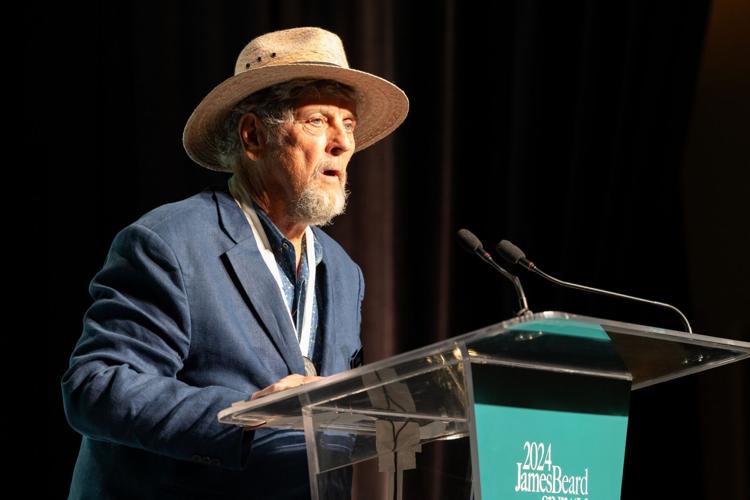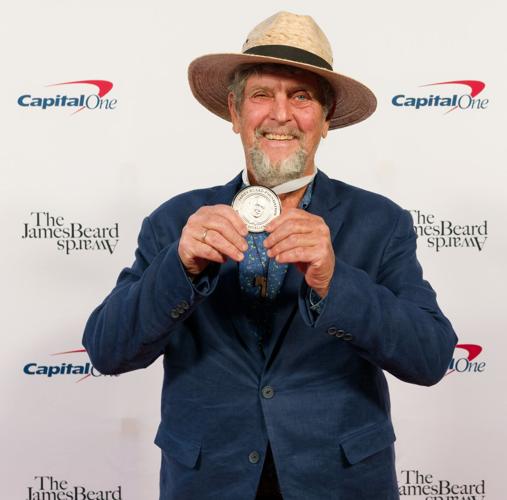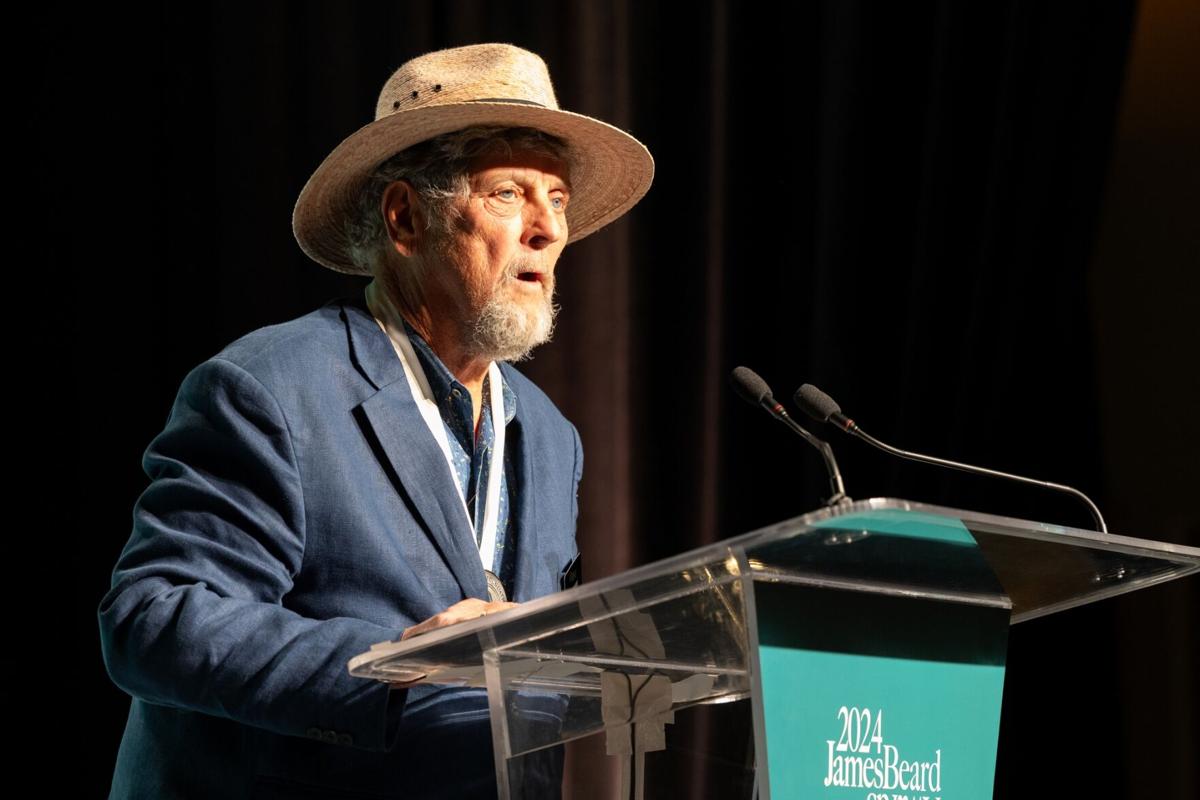Renowned Tucson ethnobotanist, conservationist and one of the architects of the city’s 2015 successful bid to land the country’s first UNESCO City of Gastronomy designation just added a James Beard Award to his mantle of accolades.
No, Gary Paul Nabhan is not a chef nor a restaurateur, which is our common perception of the award largely regarded as the Oscars for the foodiverse.
Nabhan is a widely published scholar and author who just won Tucson’s first-ever James Beard Media Award for his book “Agave Spirits: The Past, Present, and Future of Mezcals.”
Nabhan accepted the award in Chicago on June 8 on behalf of him and his co-author, Philadelphia restaurateur and agave spirits innovator David Suro Piñera.
James Beard Foundation sources, in a written release, said this is the first time a book on spirits native to the Americas was honored and the first time the award was given to an ethnobotanist/scholar-activist focused on deep cultural relationships with iconic food and beverage plants.
“The way that I feel in my heart is that I didn’t get the award; Tucson got the award because of its long continuity of agave being a part of the culture here,” Nabhan said during a phone call from home in Patagonia days after the Chicago ceremony.

Gary Paul Nabhan won a James Beard Media Award for his book “Agave Spirits,” cowritten by Philadelphia restaurateur David Suro Piñera.
Nabhan is the only Tucsonan to win a James Beard Media Award, although there have been a half-dozen Tucsonans nominated since 2000.
The win puts, though, him in elite company; he is only the fourth Tucsonan to win a James Beard, coming two years after Barrio Bread’s Don Guerra won for best baker in 2022 and six years after El Guero Canelo and its chef-owner Daniel Contreras snagged a win in 2018 in the America’s Classics category.
“I feel part of the chefs community, oddly enough,” said Nabhan, who has championed Tucson’s food culture since moving to Tucson in the early 1970s. “I just know what really great cooks are and I’m hilariously not one of those.”
“Agave Spirits” was Nabhan’s second book about agave. His first, “¡Tequila! A Natural and Cultural History” cowritten with the internationally recognized agave expert Ana G. Valenzuela-Zapata, was published by the University of Arizona Press in 2004 and considered by many mixologists as the tequila bible.
“Gary is really a generational person. There is no other way to describe him,” said Todd Hanley, founder of Tucson’s annual Agave Heritage Festival. “This award continues to emphasize, at its highest level, why the regions of Southern Arizona and the Sonoran Desert are so unique, and why we are such an unbelievably growing and prospering city. I believe it’s critically important.”
“Agave Spirits” was born three years ago over breakfast at the agave festival. Suro is the chef-owner of the Philadelphia upscale Mexican restaurant Tequilas and the tequila distillery Siembra Spirits, as well as founder of the Tequila Interchange Project advocating for sustainable practices in the agave industry. He also was a fan of Nabhan’s earlier book and suggested that it might be time to revisit the subject.
Nabhan, whose career has included serving as science director at the Arizona-Sonora Desert Museum for seven years, launching Northern Arizona University’s Center for Sustainable Environments and being a researcher for the UA’s Southwest Center, has written dozens of books and won dozens of awards, including the prestigious MacArthur Fellowship, aka “Genius Grant,” in 1990. He’s also landed a couple of foodie nods, including making Saveur magazine’s top 100 list for food innovations in 2002 and 2005 and being an early pioneer of the slow food movement.
If you visit him in Patagonia, you will be greeted at his front door with a doormat that reads: “Many have eaten here, few have died.”
“I’m sort of an experimental chef and mixologist,” he said. “I do a lot of botanical cocktails on my own and wild foods. I’ve even been known to cook road kill.”
Chef Janos Wilder was Tucson’s first James Beard-winning chef in 2000, three years after Tucson native Mort Rosenblum won a Beard book award in 1997 for "Olives: The Life and Lore of a Noble Fruit."
Tucson also has had several semifinalists, including Maria Mazon of Boca By Maria Mazon); Wendy Garcia of Tumerico; Tucson distillers Stephen Paul and Amanda Paul of Whiskey Del Bac; John Martinez, chef-owner of Tito & Pep; Mi Nidito restaurant; and Marc Ehrler of the Ventana Room at Loews Ventana Canyon Resort.






